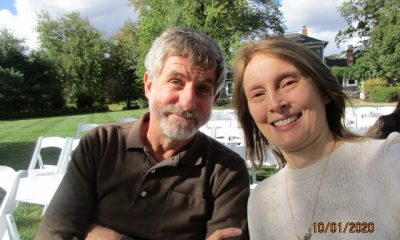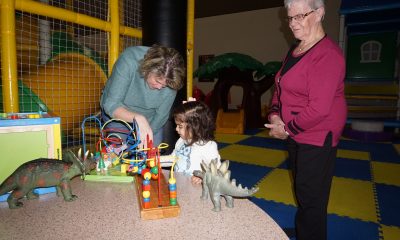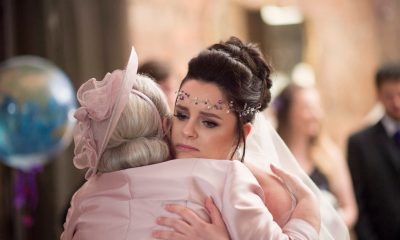by Shandi Pace
As two teenagers, Abby Fabiaschi and her friend Elizabeth were trying to figure life out. On the day before freshman year came to an end, Elizabeth was involved in a car crash and tragically lost her life. At the age of 15, Abby experienced the death of her grandmother, aunt and now, one of her best friends. “To experience loss like that. It can bring people closer together or bring them further apart,” Abby said.
Abby fell into a dark place, where she felt disconnected about things people cared about at her age. In order to clear her head, she eventually asked her parents to go to boarding school for her senior year of high school. They agreed, and Abby attended Taft School in Connecticut. This change allowed her to focus on her studies and take school more seriously.
Once Abby had completed her post-secondary education, she had more time to explore her grief. She decided to write a novel that would draw from her past experiences with death. When Abby was 24 years old, the first draft of I Liked My Life, was finished. Little did she know how this draft would help her in years to come.
Abby’s father was one of the most important people in her life. He was very non-traditional in the sense that he taught Abby and her sister to be independent. They both knew he had their backs as not only a parent but as a person.
“He let us be who we were.”
When Abby presented the idea for her novel pessimistically, her father agreed that the book wasn’t going to take off if she continued to put down her own idea. If her mentality was going to be negative, why would anyone else want to read her book? This outlook changed her perspective on writing, but it had to take a back seat to her full-time job in high-tech.
On September 23, 2008, Abby received a call from her sister that her father had passed away in his sleep from a heart attack. At the time, Abby had a four-month-old who ended up being shining light during the funeral arrangements. The death of her father and her newborn beautifully showed how the circle of life works.
After her father’s death, Abby drifted back into a depressive state and writing her book took a backseat. She threw herself into her executive role because she could feel his presence in her work. She finally felt good to be good at something.
Abby reached a turning point. After months of living the way her father had lived, working over 60 hours a week non-stop, she knew something had to improve. One evening, she found the draft of I Liked My Life on her computer and read it over. That was the moment she decided to make some life changes.
After nearly a year of discussions with her husband and saving, Abby quit her job to pursue her passion for writing. Her novel was eventually published and pulled from deeply personal experiences. She was able to compare her grief as a teenager to her grief as an adult.
Once her book took off, Abby wanted to find another way to use her business skillset. After reading the book Half the Sky, she joined the Empower Her Network to grow the level of awareness of human trafficking in the United States.
Empower Her Network works with survivors who are ready for independence. They focus on housing, education and employment with the goal of future fiscal independence. “The plan is unique to the person and really written by the person. It’s a very empowering process,” Abby said. A portion of the proceeds from her book goes to Empower Her Network.
With all the grief Abby has endured throughout her life, including the death of her father, she now values the experiences that come along with grief. “I definitely came to the conclusion that there is beauty and clarity in grief. I’m going to take what I learned from his experience and try and do right by his memory.”
For more information on Abby Fabiaschi, check out her website.
For more information on Empower Her Network, visit EmpowerHerNetwork.org.
Support us by driving awareness!
Subscribe to our YouTube channel at YouTube.com/GrapGrief.
Follow us on Facebook at Facebook.com/GrapGrief and on Instagram at Instagram.com/GrapGrief.






